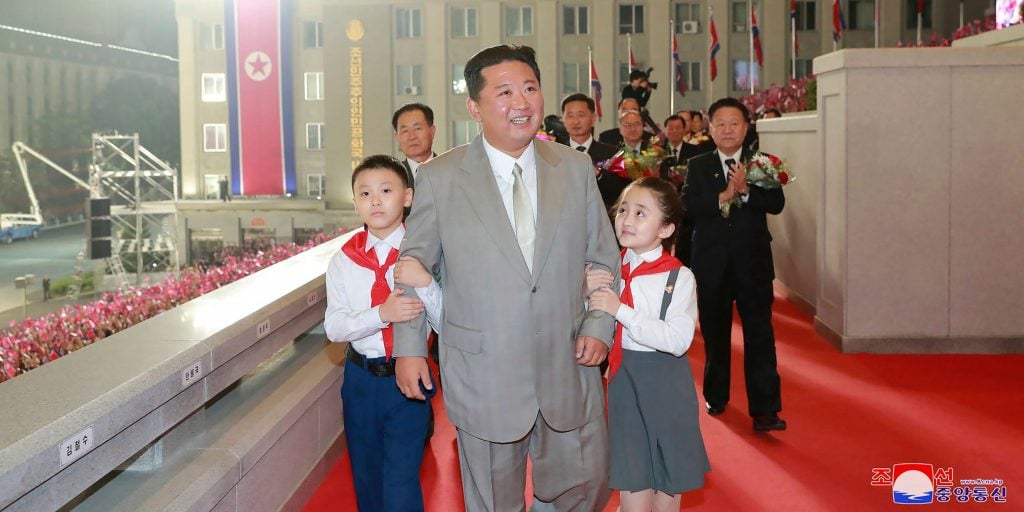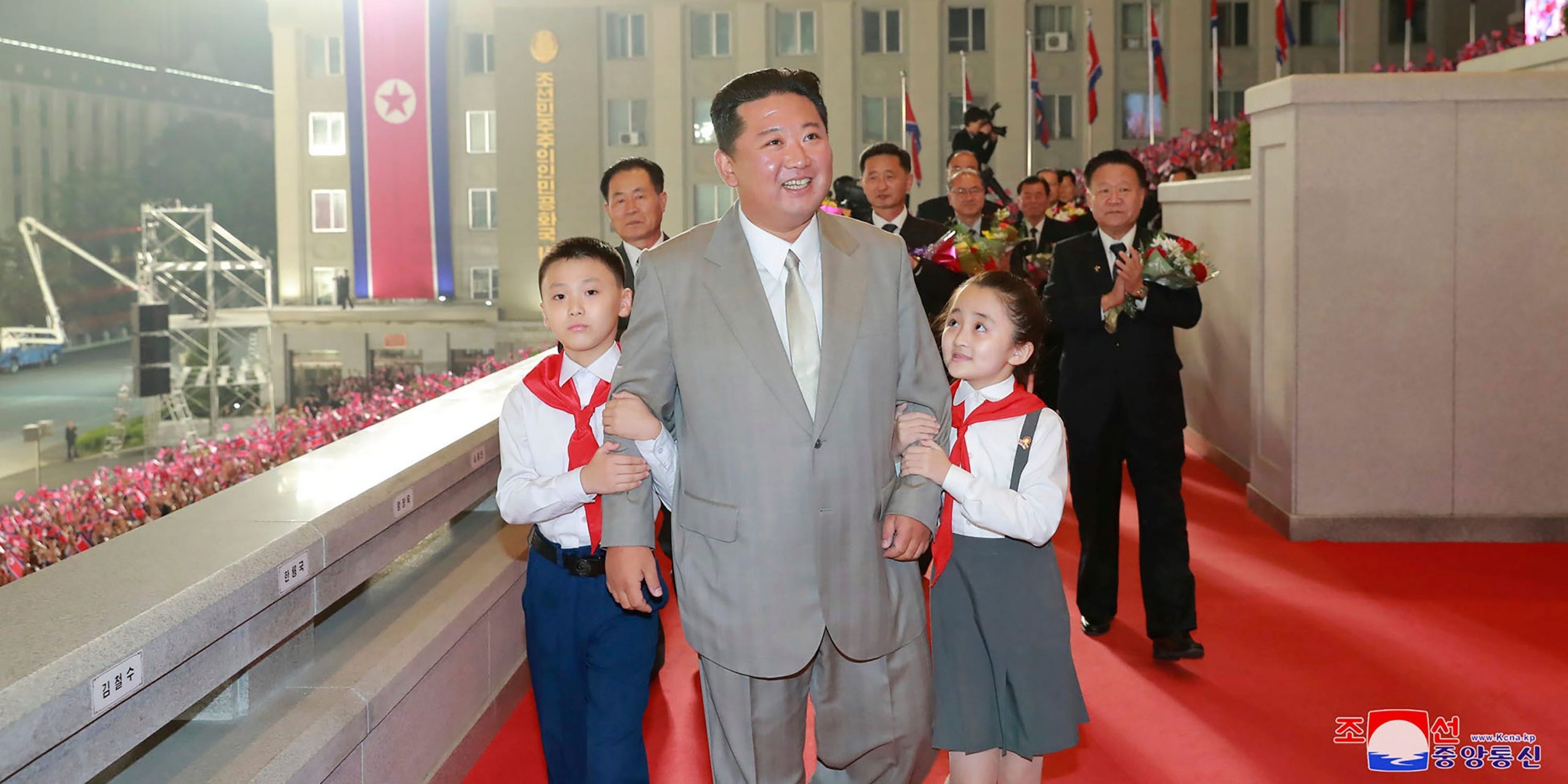
Korean Central News Agency/Korea News Service via AP
- Rumors have swirled around North Korean leader Kim Jong Un since he took power in 2011.
- Long absences from public view have prompted speculation about his health and who would succeed him.
- Political moves in North Korea suggests preparation for such a change, but experts said who comes next is unknowable.
Few world leaders are as closely watched and as shrouded in mystery as Kim Jong Un. Political and diplomatic intrigue has surrounded the dictator, believed to be in his late 30s, since he took power in 2011.
There have been frequent rumors that he is in poor health. His condition and daily whereabouts are so opaque that when he went unseen for several weeks in 2020 speculation about his death was rampant until he again appeared in public.
While Kim has proven the rumors wrong so far, developments in the past year suggest that behind closed doors, North Korea may be preparing for a day when Kim Jong Un is really gone.
Rule without rules
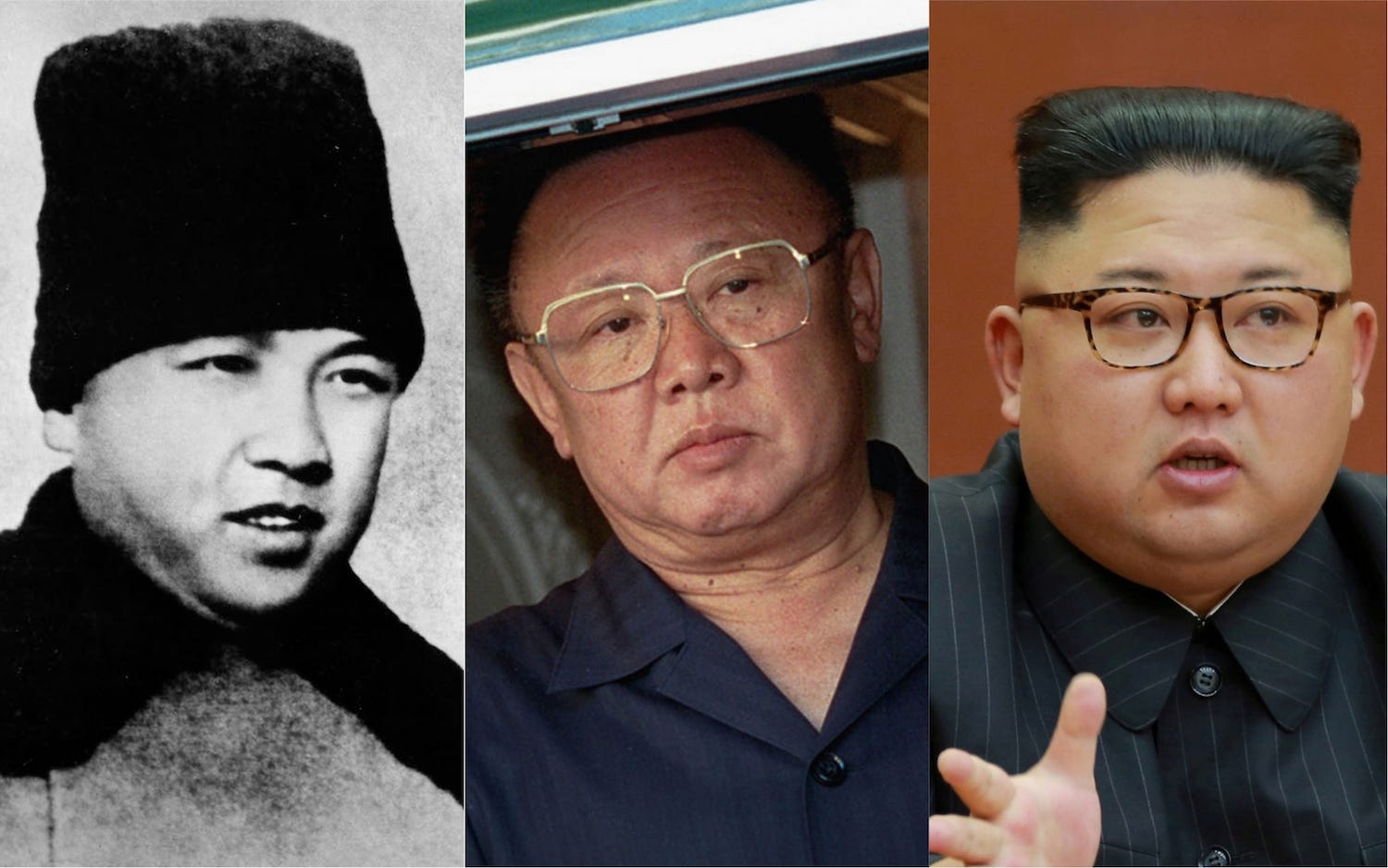
AP; Getty; KCNA via Reuters
There are currently no known rules for succession within the hierarchy of North Korea's ruling party, the Workers' Party of Korea (WPK). As a result, analysts can only base predictions about who comes after Kim on previous transfers of power.
The lack of succession protocols is not necessarily by design. North Korea has only had three leaders in its 73-year history.
Its first leader, Kim Il Sung, designated his son, Kim Jong Il, as his successor in 1980, 14 years before his death in 1994. Kim Jong Il actively avoided designating a successor until just before his death, likely in part because he himself had undermined his father's regime in some respects after his own designation.
Kim Jong Il only designated Kim Jong Un as his successor when it became clear he likely wouldn't fully recover from a severe stroke he suffered in summer 2008. Even then, it took two years for the official announcement, and Kim Jong Un was only heir-apparent for a year before becoming leader himself.
Though young and inexperienced, Kim Jong Un has ruthlessly consolidated power.
In 2013 he executed his uncle, Jang Song Thaek, for "anti-party" and "counter-revolutionary acts." Jang had been appointed as something of a regent by Kim Jong Il, and one North Korean defector has said the influence Jang gained made him a target for the younger Kim.
In 2017, Kim Jong Un had his half-brother, Kim Jong Nam, assassinated in Kuala Lumpur. Kim Jong Nam was the eldest son of Kim Jong Il and had been a vocal critic of the regime.
No alternatives
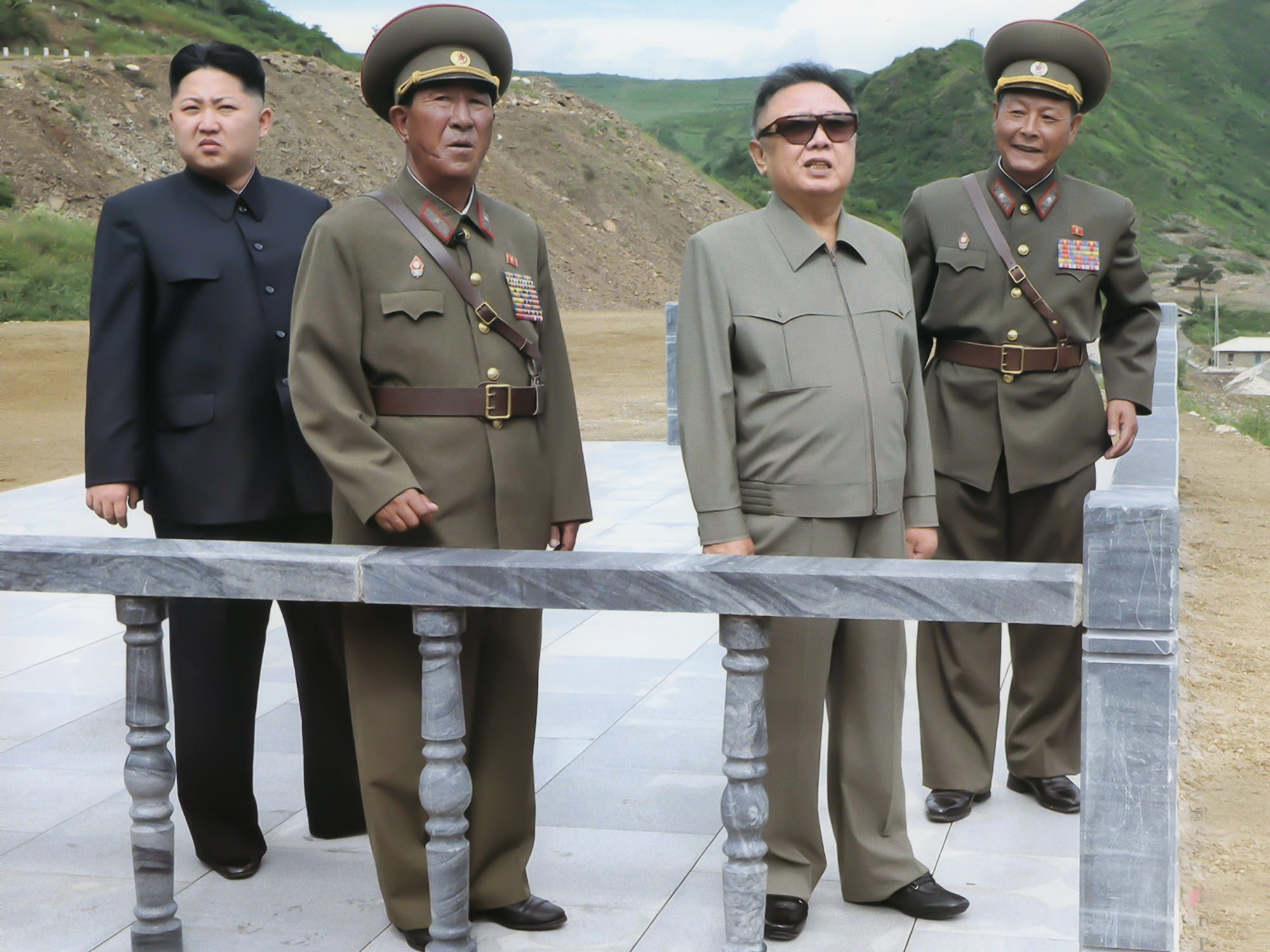
API/Gamma-Rapho via Getty Images
Kim Jong Un came to power at a considerably younger age than his father and grandfather when they assumed power and hasn't needed to designate a successor. He has also actively avoided appointing a number-two official.
"Kim Jong Un's typical procedure was to let someone look like he's becoming number two for a year or two and then purge him," Bruce Bennett, a senior defense analyst at the RAND Corporation, told Insider.
Purging sometimes means reeducation and a reduction in rank and status rather than execution.
"He's regularly done that because he doesn't want anybody to appear to be an alternative to him," Bennett said of Kim's purges. "He wants to be totally in control."
But several decisions made over the past year indicate that Kim Jong Un and WPK leaders may be preparing for someone to replace Kim.
The first are two articles from a series of rule changes that were instituted in January at the Eighth Party Congress.
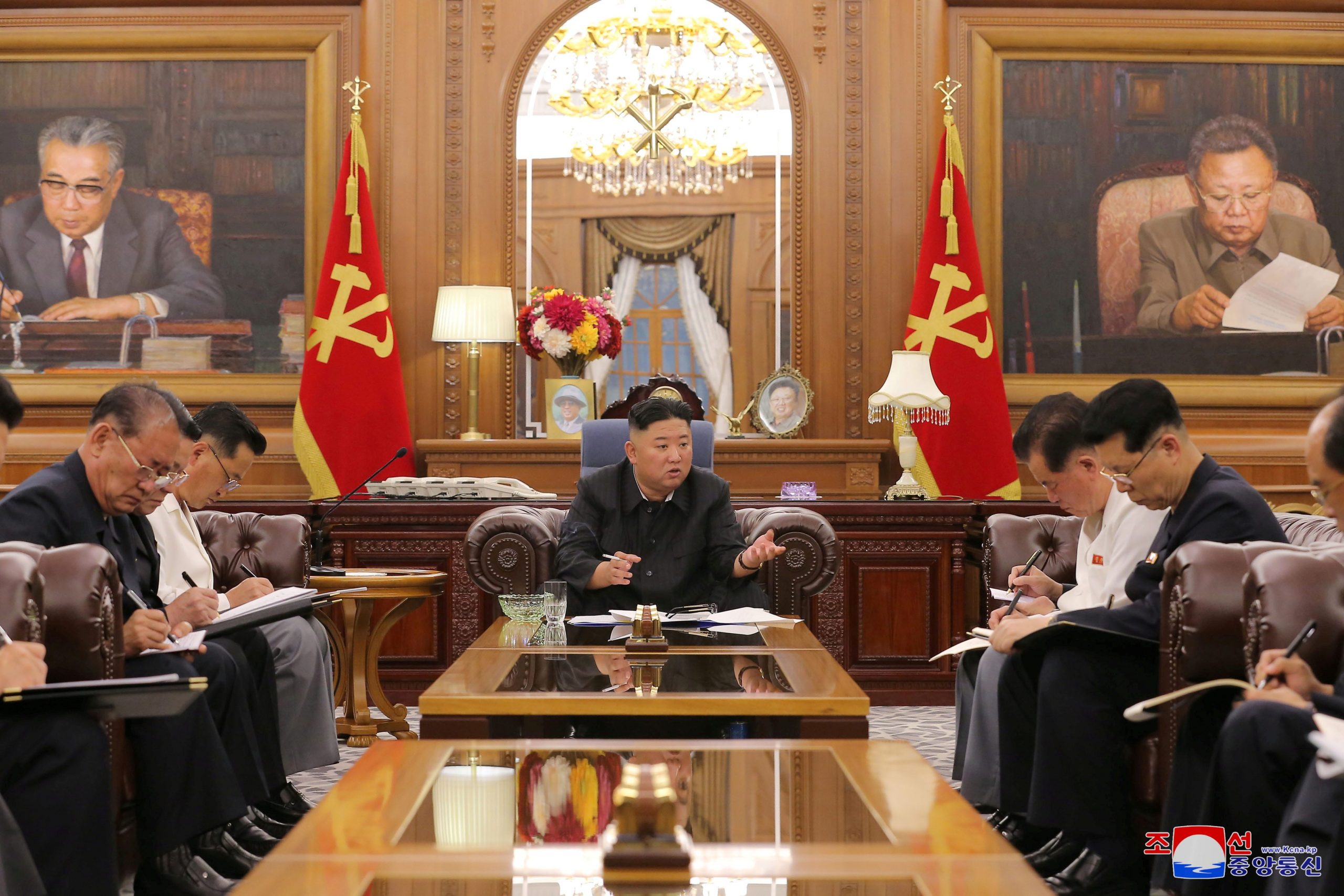
KCNA/via REUTERS
Article 28 states that any one member of the five-man Presidium of the Politburo, the WPK's highest body, may preside over a meeting if given consent by the general secretary, who is Kim Jong Un. This essentially means Kim no longer has to oversee or even attend Presidium meetings.
The most striking change by far, though, is Article 26, which creates the new position of "first secretary." The title itself isn't new. Kim Jong Un used it before he adopted "chairman" in 2016 and then "general secretary" in 2021.
Now, however, "first secretary" refers to the first deputy of the general secretary, creating a position akin to vice president - a revolutionary change, as neither the WPK nor any ruling communist party has ever officially designated a second-in-command.
No one has been named as first secretary, however, and there is nothing that states the first secretary would automatically become the leader if the general secretary dies.
"The arrangement put in place here raises an interesting question," Bennett said. "Would the number two just obviously take over or would the senior Politburo members get together and make a selection?"
Doubts about the future
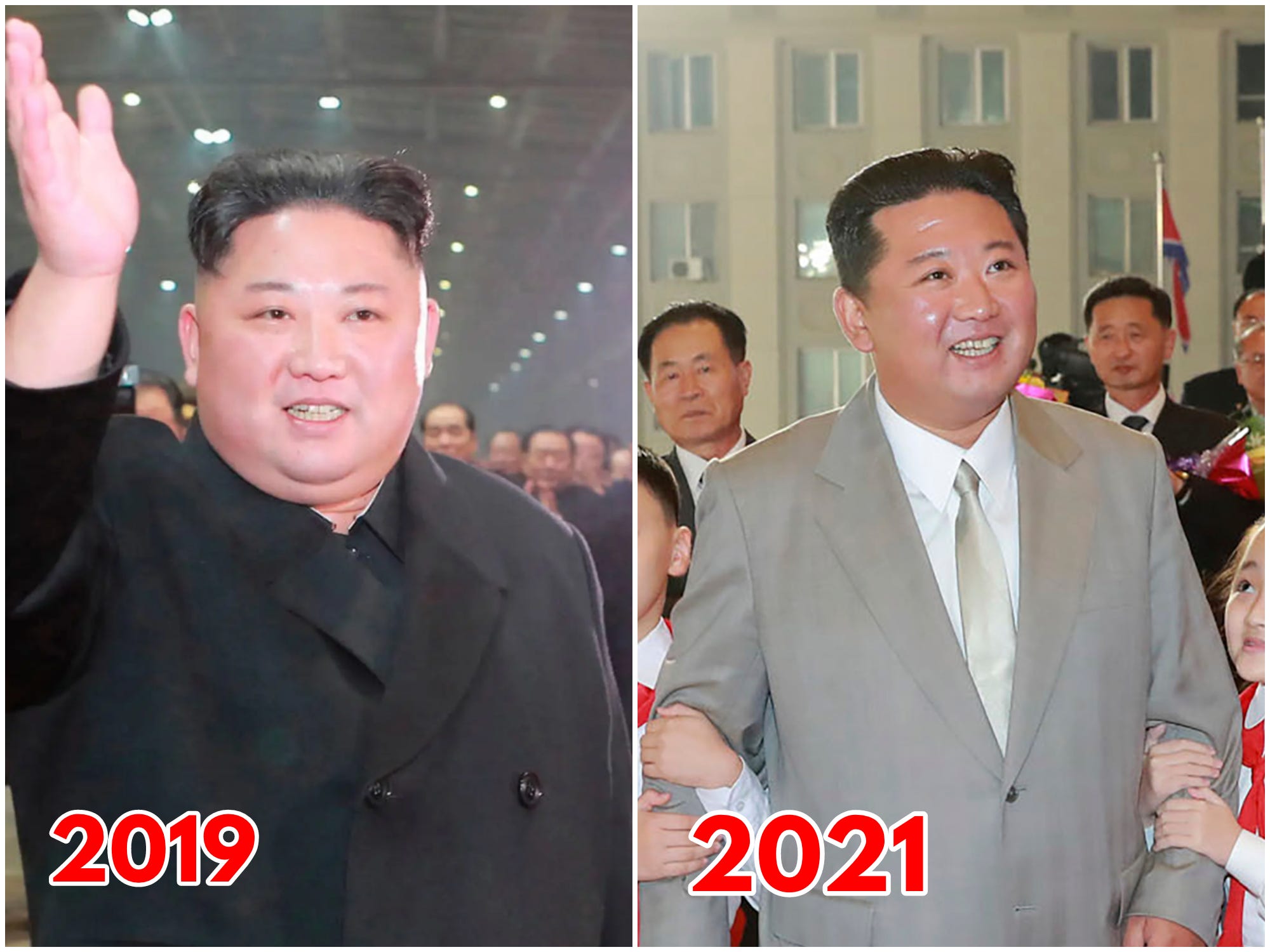
Korean Central News Agency/Korea News Service via AP / Insider
Kim Jong Un's health continues to be a mystery. Kim not only disappeared from public view again for over a month this year, but he also lost a considerable amount of weight - as much as 44 pounds, according to intelligence sources.
The weight loss is so noticeable that a resident of Pyongyang described Kim as "emaciated" on state television. Kim looked even thinner at a parade last month.
"The truth is we don't know what's going on with his health," said Sue Mi Terry, an expert on North Korea and security in Northeast Asia. "What we do know is that Kim's health is going to be the most important wildcard event for North Korea and for North Korea's stability."
North Korea already faces food shortages, floods, and a struggling economy. The loss of Kim Jong Un amid those challenges could be destabilizing.
"It is a high-risk, high-impact scenario for North Korea, because he doesn't have a successor lined up who's been groomed like Kim Jong Il was for 20 years," said Terry, who is now director of the Hyundai Motor-Korea Foundation Center for Korean History and Public Policy.
The biggest question, then, is who would succeed Kim Jong Un in the event of his death or long-term incapacitation?
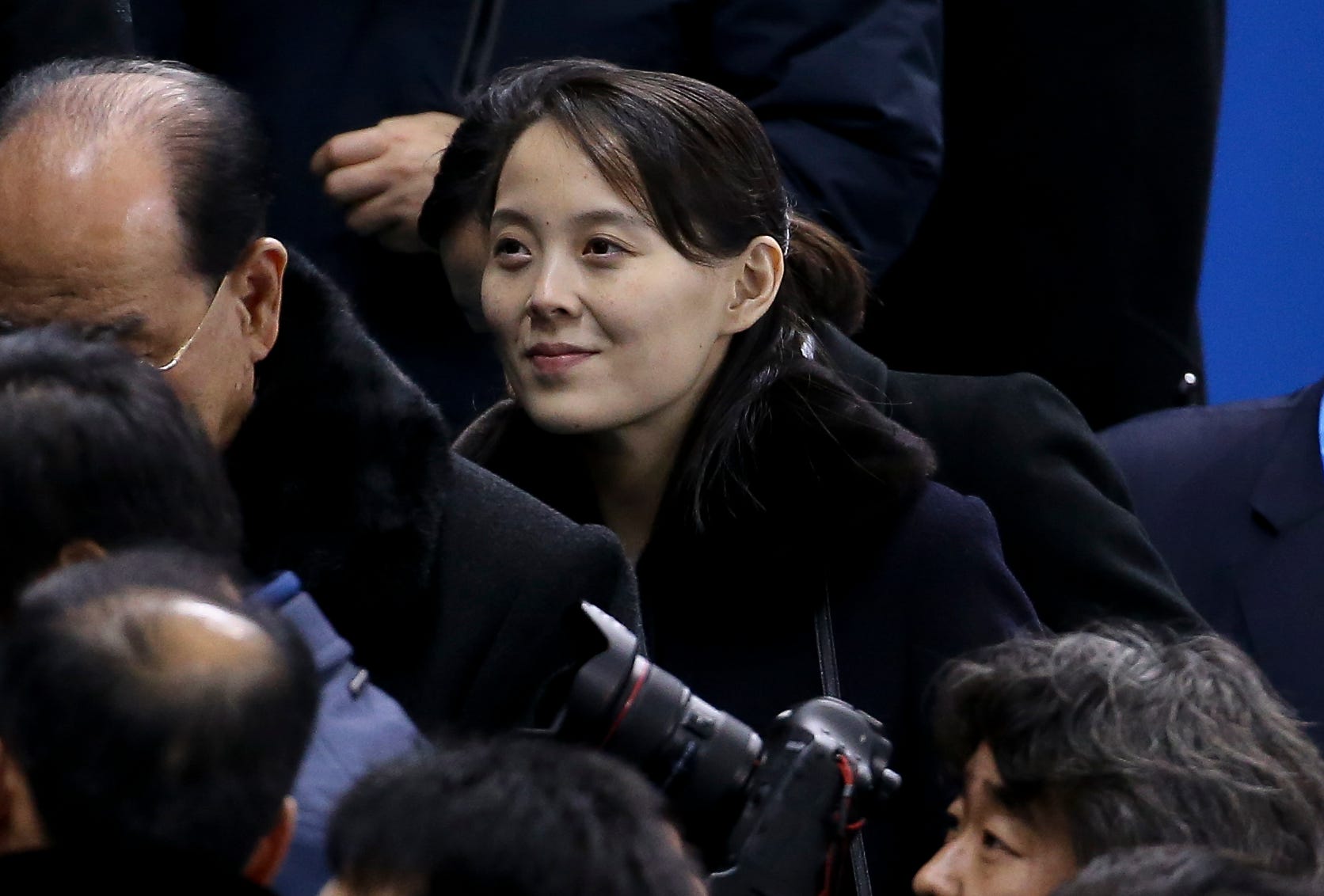
(Photo by Jean Catuffe/Getty Images)
There has been some speculation that, as Kim Jong Un's children are too young, someone from the Politburo or military could seize the initiative and take charge himself.
"Ultimately, this is something that is very unknowable," Terry said, noting that it is impossible to know if such a person even exists because "by the time we assess something or somebody, that means Kim Jong Un himself would know about it, and that guy would be gone."
"If somebody has that kind of intent, they would put their head down and act like they didn't," Terry said.
Precedent suggests Kim is unlikely to pick a successor, which could fuel rumors about his health and potentially undermine his hold on power.
But many see his sister, Kim Yo Jong, as the most likely candidate. She is a member of the Kim family and has the complete trust of Kim Jong Un. She could also be relied on to be regent for Kim's children.
Last month, Kim Yo Jong was promoted to the State Affairs Commission, the North Korean government's highest ruling body. She has also taken a central role in overseeing relations with South Korea.
"She is probably the single most important figure because [Kim] trusts her," Terry said.
